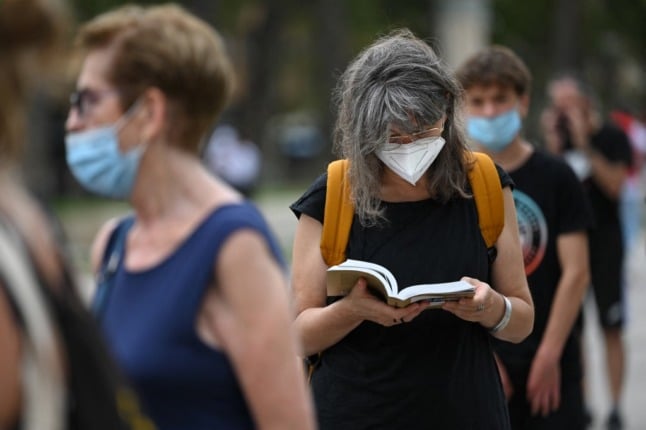Regional leaders in northeastern Catalonia said all public activities must finish at half past midnight, and no more than 10 people will be allowed to gather in private or public places.
“The data are more than worrying, they are frankly very, very bad,” Catalonia’s public health secretary Josep Maria Argimon told reporters in
Barcelona.
As of July 13th, the fortnightly infection rate in the region is 738 cases per 100,000 people, the highest in the country.
The whole of Spain has been facing a “rapid” and “significant” increase in the incidence of the virus for several weeks, with 368 cases per 100,000 inhabitants over the last 14 days, said Fernando Simón, the central government’s chief epidemiologist.
The latest wave of the disease has hit in particular under-30s who have not been vaccinated, he added.
In the province of Valencia, south of Catalonia, a 1 to 6 am curfew was restored in 32 towns, including the regional capital Valencia, Spain’s third largest city after Madrid and Barcelona.
All meetings were restricted to ten people.
READ MORE: Valencia region paves way for how curfews can return to Spain without state of alarm powers
In the face of the increase in Covid-19 cases, neighbouring France on Monday announced stricter restrictions on unvaccinated travellers from three countries that have reported high numbers of Covid cases linked to the delta variant of the virus – Spain, Portugal and the UK.
Hospital occupancy numbers in Spain are increasing slowly while the death rate is not rising at all, as so many more vulnerable people have been vaccinated, Simon said.
According to the health ministry, 59 percent of Spain’s 47 million people have received at least one vaccine dose, while 45 percent have been fully vaccinated.



 Please whitelist us to continue reading.
Please whitelist us to continue reading.
Member comments